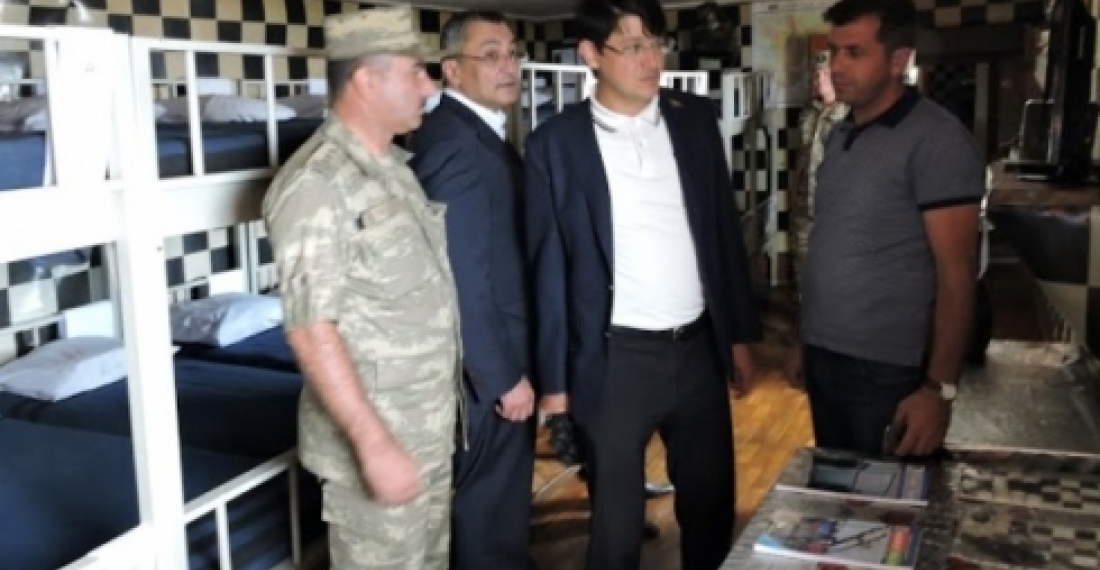Члены парламента Азербайджана и журналисты, аффилированные с парламентским Союзом журналистов, посетили солдат, проходящих службу на передовой в зоне нагорно-карабахского конфликта. Депутаты Фуад Мурадов и Ровшан Рзаев в сопровождении ряда журналистов и представителей НПО побывали в подразделениях в Товузском районе. Они встретились с военнослужащими и осмотрели казармы, расположенные недалеко от линии соприкосновения.
Про-правительственный веб-сайт modern.az сообщает, что цель визита, чтобы общественность Азербайджана должным образом была осведомлена о ситуации на линии фронта, в интересах национальной безопасности. Он пояснил, что визит является частью проекта государственной комиссии по поддержанию деятельности НПО.
За последние недели Министерство обороны Азербайджана нераз критиковало независимые средства массовой информации, и обвиняло их в распространении дезинформации в освещении военных вопросов. Озабоченность министерства была в основном связана с инцидентами, которые ежедневно происходили на линии соприкосновения, и за которыми часто следовали жертвы. Министерство обороны и в прошлом не одобряло сообщения СМИ касательно условий жизни солдат на передовой.
Источник: commonspace.eu
фото: Азербайджанские депутаты Фуад Мурадов и Ровшан Рзаев осматривают жилые помещения солдат на передовой линии в Товузском районе, 15 августа 2015 (фото любезно предоставлено modern.az).







